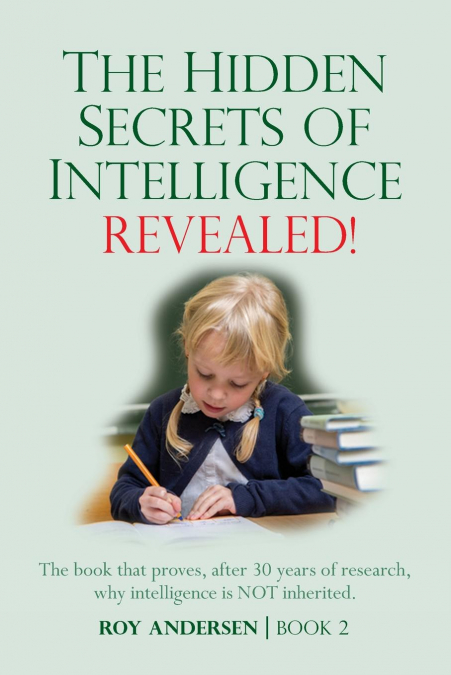
 Donde los libros
Donde los libros
 LibrerÃa 7artes
LibrerÃa 7artes
 LibrerÃa ElÃas (Asturias)
LibrerÃa ElÃas (Asturias)
 LibrerÃa Kolima (Madrid)
LibrerÃa Kolima (Madrid)
 LibrerÃa Proteo (Málaga)
LibrerÃa Proteo (Málaga)
âThe Hidden Secrets of Intelligence Revealedâ explains why a childâs intelligence cannot be related to the intelligences witnessed in members of their family line. For while we reason that intelligence is some part inherited and some part developed, we too little understand the cause of this reasoning, and how it existed long before we discovered the meaning of genetic diversity. Intelligence we are to find is a word that was invented to explain how differences in mental ability could be compared. Such comparison is not innocent, because it underlies political strategies that seek to ensure a social or ethnic continuity in a society. Yet, as we are to find, there is no actual evidence that the mental ability of one can be said to be greater or lesser than that of another because of inheritance -- providing we do not confuse this issue with a genetic mutation such as that of Down syndrome. Perhaps more to the point, we need to know that we donât actually know, or all agree, with what the word intelligence means. It is a vague description that we use far too easily to explain some limitation that appears in one, when we compare them to another. If, then, we are to understand why intelligence is not inherited, we need to understand the very long history behind why we today believe it can be measured -- and indeed why we think the greater clarity or the more confusion of a student derives from genetic diversity.As we discuss this, so will we understand that the whole concept of the Intelligence Quotient is only an idea that intelligence can be measured. The word IQ gives no suggestion as to what intelligence is or how it forms. Yet, because of the way we have been cultivated to think, when we use the term IQ we do think of intelligence as being largely inherited.To understand how the myth of a measurable intelligence arose, this book examines how Galton postulated the idea of inherited ability, as a political weapon to counter the rise of early socialism in the 19th Century. From this, it explains how Galton led Spearman to create the idea that intelligence is a singular feature of the inherited mind, which we still hold to today, as a means to enable it to be measurable. This led Pearson to devise his system of comparison that claims to show, but does not, the relationship of the genes to the environment in intelligence. To bring balance to this, the book explains how the French scientist Binet created a simple test to differentiate normal children from those who may be retarded, and never created the intelligence test attributed to him, for he fervently believed intelligence could never be measured. Yet, it was only by corrupting Binetâs one to one verbal assessment into a written Yes or No questioner, that enabled Goddard and Terman in America to be able to index human intelligence on such a massive scale that they were able to politically structure their society as they did -- for it was through their work that the Scholastic Aptitude Test or SAT later came into being, which American education today functions through and operates about.As we will see how the belief in inherited ability fitted the political needs of a different era, so we will see how it came to be the cause of educationâs failure to meet the needs of our time. As our new century progresses, these needs will change. So we must realize how this change can be very dramatic and how this can bring serious consequences to what is expected of the citizen. It was to understand what those demands may be, and how education could change to produce a more able citizen that this book was written. After all, right now no school anywhere is really preparing the child with the skills they will best need in the world they will live and work in.Â